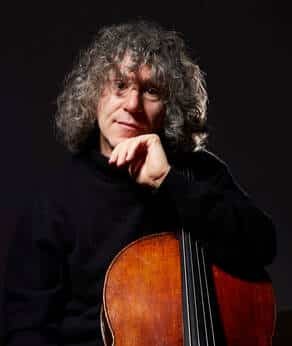Critics are ‘the shit on our sleeve’
NewsKarin Beier, director of the Hamburger Schauspielhaus, is talking of banning critics from one of Germany’s largest and most important theatres.
Theatre criticism, she said in an interview, is the ‘shit on the sleeve’ of the theatre.
Nice people.







Why do show in picture the Hamburg State Opera? This news deal with the Deutsches Schauspielhaus in Hamburg…
As long as criticism is a free-for-all profession, often underpaid at media if they have critics at all under their wing, it does not have much meaning to read the personal opinion of a performance of mr or mrs so-and-so. Fortunately there are also well-educated and well-informed critics, but they are rare, and the variety within the species is greater than in the entire animal world. This adds to music life the quality of a kind of Wild-West territory, instead of an art form.
In an ideal (!) world, criticism forms an organic part of the holistic combination of creator, recreator, audience and media reflection.
Banning critics is impossible – if they buy tickets, you cannot stop them entering – and if you do, then someone might sue you for breach of contract.
In any case, if you are known to ban critics, some might think it’s because you fear that your performances might potentially be worthy of bad reviews.
That being said I see little point in music critics writing their pieces for the newspapers to print the next morning. If I went to the performance, I can judge it for myself; if I didn’t go, then I couldn’t care less what they wrote. In any case, the quality of musical performances and works is a matter of personal preferences, as borne out by the polemics we read in SD.
Last night I went to hear the St Albans Symphony Orchestra in a concert of Rachmaninov, Shostakovich and Tchaikovsky. They were not the Vienna Philharmonic and a newspaper critic would make much of a slight slip here or a cracked note there. But they gave a blistering performance of Tchaikovsy’s Fourth Symphony – passionate, expressive and beautifully nuanced, with superb blazing brass to cap it all. I have heard many performances on CD that are more technically polished but very few reached that level of excitement – except, maybe, Mravinsky’s – but his players had more than a good conductor to elicit a superb performance – which was the fact that one wrong note would probably earn the hapless player a spell in the Gulag!
I sometimes think that if a critic writes his opinion in the newspaper, there should be another critic reviewing his review, just to give him a comparable feeling of being judged. If necessary, there could even be a third critic reviewing the former one.
Didn’t you just write a review of last nights performance? By your assertion, probably none of the readers attended so we couldn’t care less about your review. So, my question to you is, why are you posting?
Obviously to show how any perceptive listener can write one.
Yesterday I didn’t attend a concert but read a review about a concert which did not please me at all: only subjective reaction without background, too many comparisons with earlier concerts with very different performers which was irrelevant and only revealed the critic’s narcicism, and a sudden bland approval of a new work by [redacted] whom everybody knows cannot produce one singe note that sounds somehow right. It was a bad review which showed the problem of sending anybody, who has nothing better to do, with a free ticket to a concert while they obviously had wanted to spend their evening elsewhere.
This was a review of a review. It can be done.
Amen! Finally somebody has the courage to say what all performers think but can’t say!
Such a sense of relief…
God Bless you Karin Beier!
I think Sibelius said this long ago. It goes something like this: “No one has ever erected a statue to a music critic.”
In fact, bad or unprofessional critics are not the problem, readers can make-up their own mind – but the real problem is the promotors, programmers, agents who greatly overestimate such publicity because they think they need something written-down and published to reassure audiences of the quality of their ‘product’. This gives bad music criticism a power in music life entirely out of proportion. It is no exception if a very successful concert is written-down by the press and undoes the concrete effect of the performance. Often it is not the quality of the performer which counts but how mr so-and-so reacts to his/her playing. In this way, music criticism is creating barriers. (I once had an enthusiastic audience and players’ success with a première which was so angrily condemned in the press that the orchestra never wanted to have anything to do with me since.)
Or, as Sherrill Milnes used to say, “Critics are to music as pigeons are to statues”.
Yeah, he did, and it always gets trotted out and it’s total garbage. There are monuments to Schumann, Berlioz, Debussy, ETA Hoffmann, Vladimir Stasov, Eduard Hanslick, George Bernard Shaw…
Often the criticism of Hanslick is forgotten and he is painted as a Beckmesser. But his descriptions of Wagner operas and especially of enthusiastic Wagnerian writing is hilarious and is still very amusing reading.
Frank Flambeau, what about George Bernard Shaw?
One of the interesting things about Shaw was that he always fulminated against Brahms, which he found entirely void of any personality let alone originality, and condemned the many performances of this music as the apotheosis of dull mediocrity. Only at the end of his life he began to hear the originality which always had been there, and he apologized and corrected.